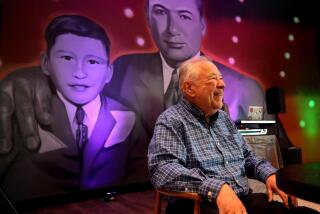Appeals Court Rejects Bid to Close Adult Theater in Santa Ana
A Santa Ana savings and loan’s efforts to close down an adult theater in nearby Honer Plaza was rejected by the courts again Monday, this time by the 4th District Court of Appeal.
The state appellate court in Santa Ana found no merit to a lawsuit by the Lincoln Savings & Loan Assn. against the owners of the Mitchell Bros. theater, who already had won a 10-year battle with the city of Santa Ana to keep their adult movie house open.
In a unanimous decision, the appellate court supported a Superior Court decision refusing a request by the savings and loan that the movie house be shut down by court injunction.
The savings and loan, owned by millionaire Charles H. Keating Jr. of Phoenix, filed its lawsuit two years ago after the city and the theater came to an agreement. The city dropped its lawsuit and paid the Mitchell Bros.’ legal fees. In return, the adult movie theater chain agreed to stop advertising its X-rated films on a large marquee in front of the shopping center at Seventeenth and Bristol streets.
“Lincoln fails to challenge the lower court’s finding it brought this action to harass (the Mitchell Bros.) and avoid the city’s settlement with the theater,” wrote Justice Henry T. Moore Jr. in the appellate ruling released Monday. “The record clearly supports this conclusion,” he added.
Between November, 1976, and March, 1987, the city of Santa Ana filed 46 lawsuits against the theater. But members of the City Council, facing sharp criticism in the community for mounting legal costs of the battle--more than $500,000--finally agreed that the fight wasn’t worth it.
In its legal action filed after the city settlement, the savings and loan argued that the movie house was a public nuisance. But the justices found that the plaintiffs failed to prove that point.
Attorneys for Lincoln, which has a branch office near the theater, filed with the court a list of 55 films and 12 previews shown at the theater that they contended were obscene. The films, Lincoln’s lawyers wrote the court, “caused personal offense, outrage and emotional distress,” as well as subjecting Lincoln’s employees and customers “to immoral, corrupting and degrading influences.”
It also argued that the theater has a negative impact on real estate values in the area, and that it morally harms the public.
The justices ruled that the argument concerning real estate value was without merit. On the public harm, the justices pointed out that the theater owners were not operating “an outdoor theater, subjecting nearby residents to the sights and sounds of the exhibited films.”
More to Read
Sign up for Essential California
The most important California stories and recommendations in your inbox every morning.
You may occasionally receive promotional content from the Los Angeles Times.










